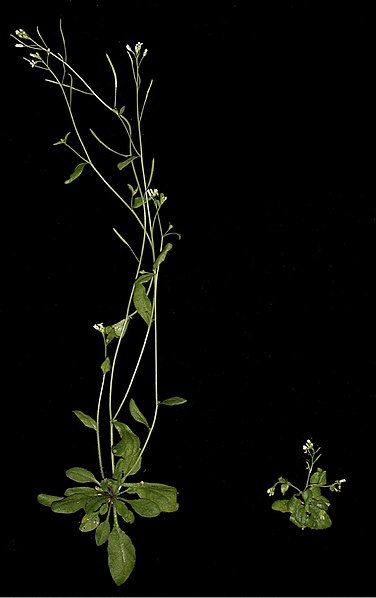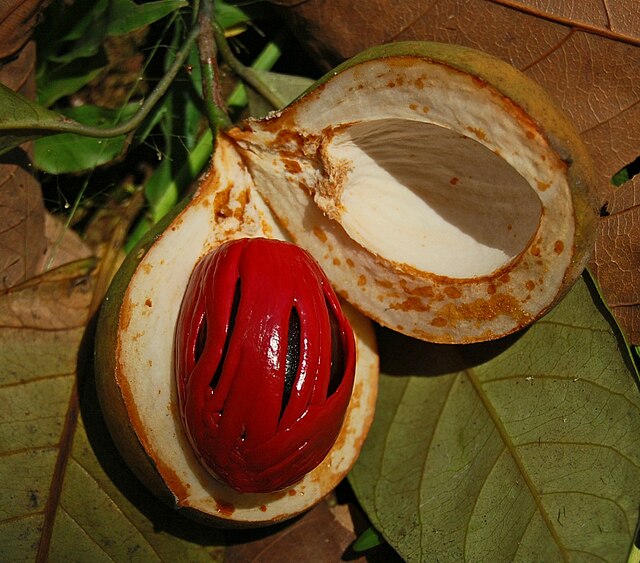Plant physiology is a subdiscipline of botany concerned with the functioning, or physiology, of plants.
A germination rate experiment
Latex being collected from a tapped rubber tree.
Anthocyanin gives these pansies their dark purple pigmentation.
A mutation that stops Arabidopsis thaliana responding to auxin causes abnormal growth (right)
Botany, also called plant science, plant biology or phytology, is the science of plant life and a branch of biology. A botanist, plant scientist or phytologist is a scientist who specialises in this field. The term "botany" comes from the Ancient Greek word βοτάνη meaning "pasture", "herbs" "grass", or "fodder"; βοτάνη is in turn derived from βόσκειν, "to feed" or "to graze". Traditionally, botany has also included the study of fungi and algae by mycologists and phycologists respectively, with the study of these three groups of organisms remaining within the sphere of interest of the International Botanical Congress. Nowadays, botanists study approximately 410,000 species of land plants of which some 391,000 species are vascular plants, and approximately 20,000 are bryophytes.
The fruit of Myristica fragrans, a species native to Indonesia, is the source of two valuable spices, the red aril (mace) enclosing the dark brown nutmeg.
Leonhart Fuchs
Hieronymus Bock
The Linnaean Garden of Linnaeus' residence in Uppsala, Sweden, was planted according to his Systema sexuale.








